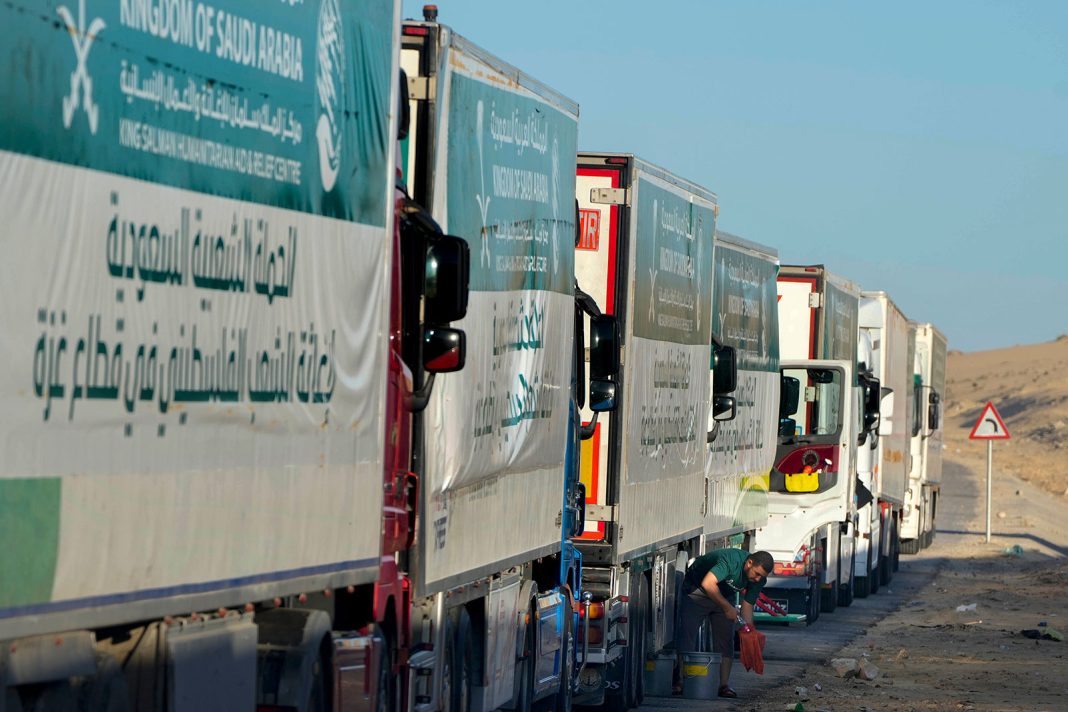The current amount of aid is insufficient and the conditions required to deliver aid to Gaza do not exist, according to Hastings, the Deputy Special Coordinator for the Middle East Peace Process and United Nations Resident Coordinator for the Occupied Palestinian Territory.
“If possible, an even more hellish scenario is about to unfold, one in which humanitarian operations may not be able to respond,” Hastings said.
The use of only the Rafah crossing to bring trucks of aid does not work, the UN said, despite the efforts of its agencies, the Egyptian and Palestine Red Crescent Society, and other partners.
The international body added Gaza’s health system is “on its knees” with a lack of clean drinking water, no proper sanitation and poor nutrition for people, and shelters with no capacity.
The situation amounts to a “textbook formula for epidemics and a public health disaster,” Hastings said. “Humanitarian operations cannot be kept on a drip feed of fuel”, she continued, adding that fuel is required for hospitals, clean drinking water, sanitation, social services and UN operations, among others.
The UN announced fuel must be allowed to enter Gaza in a “manner which ensures Israel’s security”.
Hastings said the UN and NGOs alone can’t support the population of Gaza, stressing that commercial and public sectors must be allowed to bring supplies into Gaza.
The UN added it stands ready to work with all parties to “expand the number of UN-managed safe shelters and to deliver assistance where it is needed.”
The president of the International Committee of the Red Cross (ICRC), during a visit to the Gaza Strip, also said the level of human suffering there is intolerable.
“The purpose of my visit is to advance efforts that alleviate the desperate humanitarian situation,” Mirjana Spoljaric said Monday in a statement, adding that civilians currently have “no safe place to go in Gaza.”
“We have urgently appealed for civilian life to be protected and respected on all sides, in line with international humanitarian law, and I reiterate that appeal today.”
Spoljaric also stressed the ICRC must be allowed to safely visit hostages being held in Gaza. She said it would enable the organization to provide updates to family members on the well-being of their loved ones.
The ICRC president highlighted the positive impact of the week-long truce between Israel and Hamas, describing it as “a small degree of humanitarian respite” and a “positive glimpse of humanity”.
